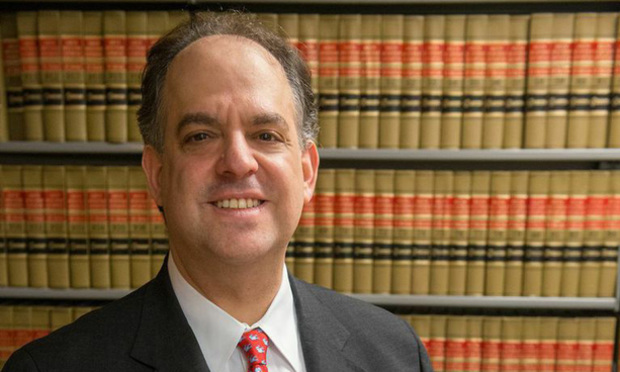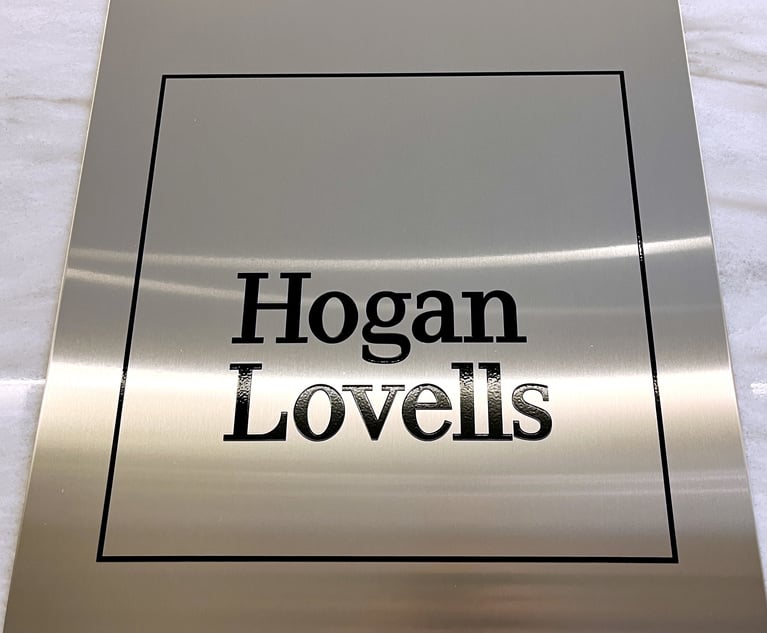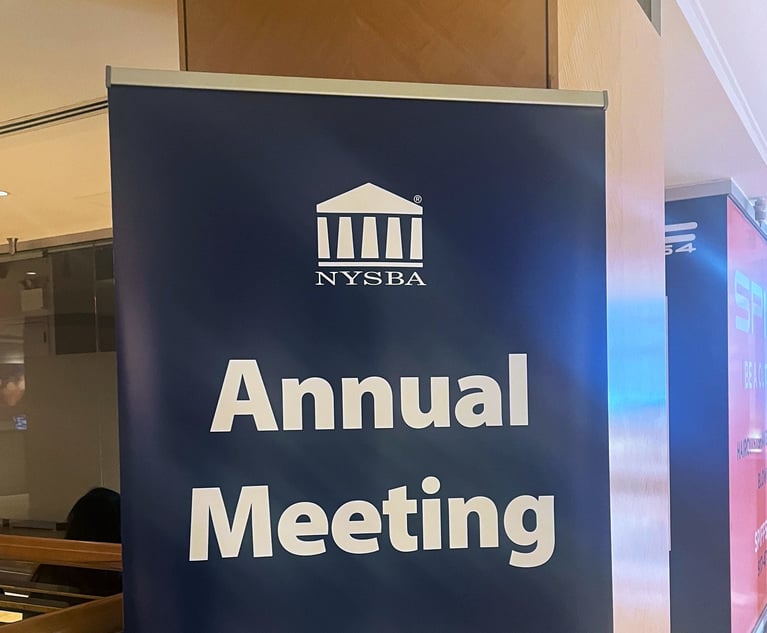Appeals Court Strikes $8.7M in Legal Fees Based on Coupons in Class Action Settlement
The U.S. Court of Appeals for the Ninth Circuit found that the district judge had violated the Class Action Fairness Act and tackled the legal question of what constitutes a coupon.
October 04, 2018 at 07:21 PM
5 minute read
 Ted Frank, Center for Class Action Fairness
Ted Frank, Center for Class Action Fairness
The Class Action Fairness Act may have curbed the use of coupons in class action settlements, but a federal appeals court Wednesday grappled with another question: What exactly constitutes a coupon?
The ruling, by the U.S. Court of Appeals for the Ninth Circuit, vacated $8.7 million in attorney fees in a class action of 1.3 million consumers of ProFlowers.com and RedEnvelope.com who unknowingly signed up to a rewards program that charged them a $1.95 activation fee and a $14.95 monthly membership. The 2012 settlement of the case offered $3.5 million in refunds and a $20 credit for each class member toward a future online purchase on the same sites. But just 3,000 class members submitted claims totaling $225,000.
Ted Frank, of the Center for Class Action Fairness at the Competitive Enterprise Institute, appealed the settlement on behalf of an objector, insisting that U.S. District Judge Cynthia Bashant of the Southern District of California included un-redeemed coupons in violation of the Class Action Fairness Act when estimating the settlement's value at $38 million, on which she based the fees.
The Ninth Circuit agreed.
“That brings us to the million—here, multimillion—dollar question: whether defendants' credits are coupons,” Circuit Judge Michelle Friedland wrote. “We hold that, applying the correct legal standard, the only logical conclusion is that they are.”
But the panel didn't go so far as to reverse the settlement's approval. It also upheld a cy pres portion of the deal in which $3 million is set to go to three San Diego universities. Frank had challenged that part of the settlement, noting that one of the plaintiffs attorneys, James Patterson of the Patterson Law Group in San Diego, was an alumnus of the University of San Diego School of Law.
Frank made similar arguments in a separate case against Google, Frank v. Gaos, which the U.S. Supreme Court is set to hear on Oct. 31.
“We are gratified that the court rejected class counsel's attempt to evade the Class Action Fairness Act's restrictions on coupon settlements,” Frank wrote in a statement, “but the fact that the court was willing to countenance attorneys choosing to prefer their alma mater and local San Diego schools to nationwide class recovery, while collecting 15 to 40 times as much as their clients, shows why the Supreme Court needs to reverse in Frank v. Gaos. We are considering our options for further review.”
Plaintiffs attorney Jennie Lee Anderson of Andrus Anderson in San Francisco did not respond to a request for comment. The other lawyers in the case were Patterson, Bruce Steckler of the Steckler Gresham Cochran in Dallas, who argued for the plaintiffs, and Michael Singer of San Diego's Cohelan Khoury & Singer.
Leo Norton, special counsel in Cooley's San Diego office, who argued for the defendants, did not respond to a request for comment. The defendants were Provide Commerce Inc. and Regent Group Inc., which provided the rewards program.
The case, originally filed in 2009 in the U.S. District Court for the Southern District of California, has made two trips to the Ninth Circuit. Frank appealed after U.S. District Judge Anthony Battaglia approved the deal in 2013.
But the Ninth Circuit sent the case back down to the district court to address its 2015 holding in In re Online DVD-Rental Antitrust Litigation, which found that $12 gift cards to Walmart weren't coupons.
The cases were transferred to Bashant, who approved the deal in 2016, concluding that the fee award was 23 percent of the settlement's value and reasonable given a billing estimate of $4.3 million.
Frank appealed again. This time, attorneys general from 13 states, including Arizona, Louisiana and Texas, wrote in an amicus brief supporting Frank that the settlement “bears the hallmarks of a coupon settlement.”
The panel noted that, unlike the Online DVD case, the $20 credits had several restrictions, such as an expiration date and blackouts for Valentine's Day and Mother's Day, both popular holidays for buying chocolates and flowers.
As to the cy pres recipients—San Diego State University, the University of California at San Diego and the University of San Diego School of Law—the panel found nothing improper.
“Objector's bare allegation that the institutions were selected for an improper reason is insufficient to show that it was an abuse of discretion for the district court to approve their selection,” Friedland wrote.
Read more:
Amici Line Up to Weigh in on Google Settlement at SCOTUS Challenging Cy Pres in Class Actions
Federal Judge Approves Anthem Data Breach Settlement, Slashes Attorney Fees
US Supreme Court Finally Takes a 'Cy Pres' Case, and This One Involves Google
This content has been archived. It is available through our partners, LexisNexis® and Bloomberg Law.
To view this content, please continue to their sites.
Not a Lexis Subscriber?
Subscribe Now
Not a Bloomberg Law Subscriber?
Subscribe Now
NOT FOR REPRINT
© 2025 ALM Global, LLC, All Rights Reserved. Request academic re-use from www.copyright.com. All other uses, submit a request to [email protected]. For more information visit Asset & Logo Licensing.
You Might Like
View All
Hogan Lovells Hires Quinn Emanuel IP Litigator in San Francisco

Patreon Hit With Lawsuit for Allegedly Diverting Subscriber Data to Meta

Willkie Farr & Gallagher Drives Legal Challenge for Uber Against State's Rideshare Laws
5 minute read
NYSBA Annual Meeting: How In-House Counsel Navigate Gen AI Risk
Trending Stories
- 1FTC Sues PepsiCo for Alleged Price Break to Big-Box Retailer, Incurs Holyoak's Wrath
- 2Greenberg Traurig Litigation Co-Chair Returning After Three Years as US Attorney
- 3DC Circuit Rejects Jan. 6 Defendants’ Claim That Pepper Spray Isn't Dangerous Weapon
- 4Quiet Retirement Meets Resounding Win: Quinn Emanuel Name Partner Kathleen Sullivan's Vimeo Victory
- 5Balancing Hybrid Work With Relationship Building, Newly Merged Ballard Spahr Prioritizes 'Coaching Aspect' of Training New Associates
Who Got The Work
J. Brugh Lower of Gibbons has entered an appearance for industrial equipment supplier Devco Corporation in a pending trademark infringement lawsuit. The suit, accusing the defendant of selling knock-off Graco products, was filed Dec. 18 in New Jersey District Court by Rivkin Radler on behalf of Graco Inc. and Graco Minnesota. The case, assigned to U.S. District Judge Zahid N. Quraishi, is 3:24-cv-11294, Graco Inc. et al v. Devco Corporation.
Who Got The Work
Rebecca Maller-Stein and Kent A. Yalowitz of Arnold & Porter Kaye Scholer have entered their appearances for Hanaco Venture Capital and its executives, Lior Prosor and David Frankel, in a pending securities lawsuit. The action, filed on Dec. 24 in New York Southern District Court by Zell, Aron & Co. on behalf of Goldeneye Advisors, accuses the defendants of negligently and fraudulently managing the plaintiff's $1 million investment. The case, assigned to U.S. District Judge Vernon S. Broderick, is 1:24-cv-09918, Goldeneye Advisors, LLC v. Hanaco Venture Capital, Ltd. et al.
Who Got The Work
Attorneys from A&O Shearman has stepped in as defense counsel for Toronto-Dominion Bank and other defendants in a pending securities class action. The suit, filed Dec. 11 in New York Southern District Court by Bleichmar Fonti & Auld, accuses the defendants of concealing the bank's 'pervasive' deficiencies in regards to its compliance with the Bank Secrecy Act and the quality of its anti-money laundering controls. The case, assigned to U.S. District Judge Arun Subramanian, is 1:24-cv-09445, Gonzalez v. The Toronto-Dominion Bank et al.
Who Got The Work
Crown Castle International, a Pennsylvania company providing shared communications infrastructure, has turned to Luke D. Wolf of Gordon Rees Scully Mansukhani to fend off a pending breach-of-contract lawsuit. The court action, filed Nov. 25 in Michigan Eastern District Court by Hooper Hathaway PC on behalf of The Town Residences LLC, accuses Crown Castle of failing to transfer approximately $30,000 in utility payments from T-Mobile in breach of a roof-top lease and assignment agreement. The case, assigned to U.S. District Judge Susan K. Declercq, is 2:24-cv-13131, The Town Residences LLC v. T-Mobile US, Inc. et al.
Who Got The Work
Wilfred P. Coronato and Daniel M. Schwartz of McCarter & English have stepped in as defense counsel to Electrolux Home Products Inc. in a pending product liability lawsuit. The court action, filed Nov. 26 in New York Eastern District Court by Poulos Lopiccolo PC and Nagel Rice LLP on behalf of David Stern, alleges that the defendant's refrigerators’ drawers and shelving repeatedly break and fall apart within months after purchase. The case, assigned to U.S. District Judge Joan M. Azrack, is 2:24-cv-08204, Stern v. Electrolux Home Products, Inc.
Featured Firms
Law Offices of Gary Martin Hays & Associates, P.C.
(470) 294-1674
Law Offices of Mark E. Salomone
(857) 444-6468
Smith & Hassler
(713) 739-1250






